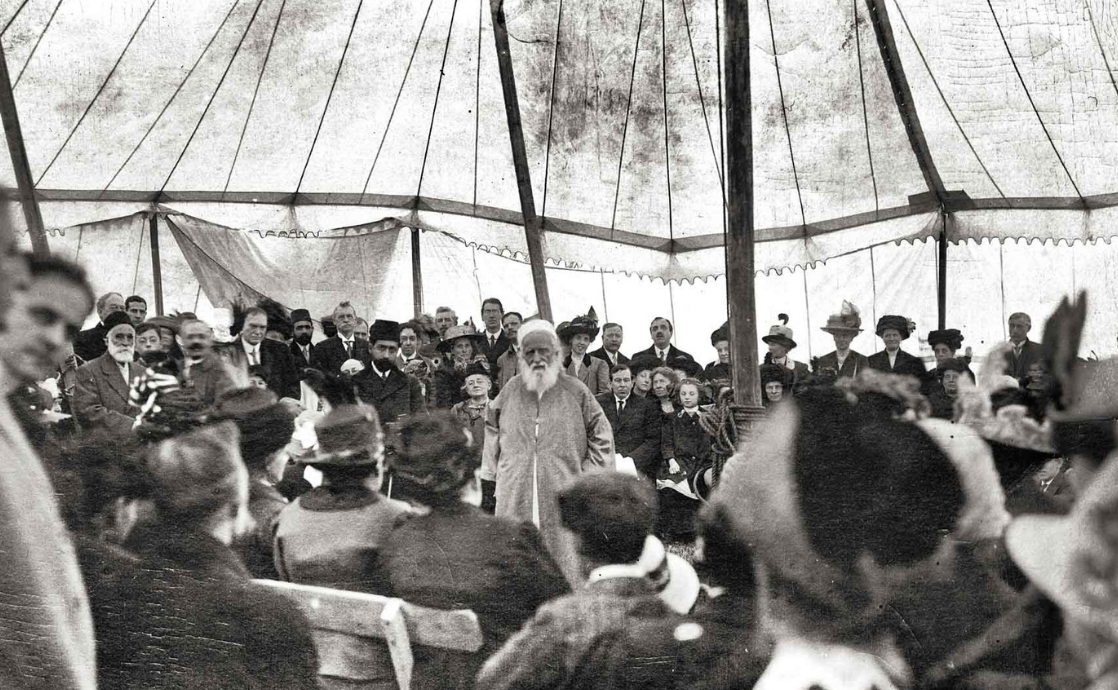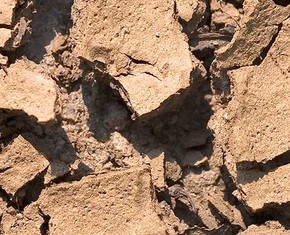The views expressed in our content reflect individual perspectives and do not represent the authoritative views of the Baha'i Faith.
Why, I wondered when I first heard Abdu’l-Baha’s name and learned about his legacy, do so many people around the globe see him as their role model, as the best example of how to live spiritually?
Baha’is everywhere look to Abdu’l-Baha’s life as the standard for how to conduct their own lives, as do many who are not Baha’is, so this series of essays attempts to explain the mystery of how one person who passed away a hundred years ago can still create and exert such a strong moral and spiritual gravitational field on millions today.
RELATED: A Mighty Mystery: Who Was Abdu’l-Baha to Those Who Met Him?
If you read the previous essay in this series, you already know a few of the basic biographical facts of Abdu’l-Baha’s life. In this and subsequent essays, though, I want to try and present a more spiritual biography – a record of Abdu’l-Baha’s actions in the world that give us a sense of his soul, of who he truly was, of the inner fires that lit his outer being and made him into a role model for millions.
The Son of a Prophet
To fully consider the spiritual life of Abdu’l-Baha, we first have to try and comprehend what it must have been like being the son of a messenger of God.
Abdu’l-Baha’s father Baha’u’llah initially became aware of his divine mission as the founder and prophet of the Baha’i Faith in the latter months of 1852, after he had been thrown into Persia’s worst prison, the infamous Siyah-Chal, or Black Pit. The historian Nabil described the horrible conditions in that dungeon in his book The Dawnbreakers:
The Siyah-Chal, into which Baha’u’llah was thrown, originally a reservoir of water for one of the public baths of Tihran [now usually spelled Tehran], was a subterranean dungeon in which criminals of the worst type were wont to be confined. The darkness, the filth, and the character of the prisoners, combined to make of that pestilential dungeon the most abominable place to which human beings could be condemned. His feet were placed in stocks, and around His neck were fastened the Qara-Guhar chains, infamous throughout Persia for their galling weight.

During his confinement in the Black Pit, Baha’u’llah experienced the first intimations of his revelation, which he later recounted in his book Epistle to the Son of the Wolf:
During the days I lay in the prison of Tihran, though the galling weight of the chains and the stench-filled air allowed Me but little sleep, still in those infrequent moments of slumber I felt as if something flowed from the crown of My head over My breast, even as a mighty torrent that precipitateth itself upon the earth from the summit of a lofty mountain. Every limb of My body would, as a result, be set afire. At such moments My tongue recited what no man could bear to hear.
As a young boy, Abdu’l-Baha went to that prison to see his father, who was in his mid-thirties at the time. Dr. J. E. Esselmont, in his book Baha’u’llah and the New Era, recounted the visit:
Abdu’l-Baha tells how, one day, He was allowed to enter the prison yard to see His beloved Father, where He came out for His daily exercise. Baha’u’llah was terribly altered, so ill He could hardly walk, His hair and beard unkempt, His neck galled and swollen from the pressure of a heavy steel collar, His body bent by the weight of His chains, and the sight made a never-to-be-forgotten impression on the mind of the sensitive boy.
Try to imagine, if you will, what that must have been like for Abdu’l-Baha as a child, who later wrote about the intense sufferings he witnessed, saying that his father Baha’u’llah:
… gave up a hundred lives at every breath. He bore calamities. He suffered anguish. He was imprisoned. He was chained. He was made homeless and was banished to distant lands. Finally, then, He lived out His days in the Most Great Prison.
In Hasan Balyuzi’s biography of Baha’u’llah, he quoted Abdu’l-Baha’s traumatizing first impressions of the sight of his father in chains:
Suddenly they brought the Blessed Perfection [Baha’u’llah] out of the dungeon. He was chained to several others. What a chain! It was very heavy. The prisoners could only move it along with great difficulty. Sad and heart-rendering it was.
But long before Baha’u’llah’s unjust imprisonment and banishment, Abdu’l-Baha’s early spiritual journey no doubt accelerated as a young boy when his father and mother opened their home as a hospital for Persia’s poorest women and children. His lifelong admiration for his father continued and grew as Abdu’l-Baha and his siblings accompanied their parents, on foot and through brutal weather across mountains and deserts during Baha’u’llah’s successive exiles to faraway prisons. Then Abdu’l-Baha himself became a prisoner for four decades, not because he ever did anything wrong but solely because he followed his father’s Faith.

RELATED: Abdu’l-Baha: Gone from Our Midst for a Hundred Years
These actions alone formed Abdu’l-Baha’s character in the forge of severe hardship. Here, referring to his father Baha’u’llah by one of his titles, the “Blessed Beauty,” Abdu’l-Baha gave us a clue about the formation of his unique inner landscape:
The Blessed Beauty, may my life be a sacrifice for His loved ones, did not raise us to live a life of comfort — to repose in ease, or make merry, or indulge in pleasures. He spent His days in prison; He raised us to be intoxicated with the wine of disappointment, and trained us to endure every hardship, so that the genuine intention to serve the Cause of God would be mixed into our characters. Thereby would we make sacrifices without even willing it and eschew even a moment’s peace.
The extreme hardships Abdu’l-Baha endured grew solely out of love. At any moment in his four decades of exile and imprisonment, he could have opted out of those hardships by simply renouncing the Baha’i teachings. Instead, he devoted his entire being to the Baha’i Faith, giving his life for the highest imaginable ideals, and not in a quick moment of martyrdom but by living in the day-to-day reality of a harsh world of tests and trials with grace, loving kindness, and peace.
That example of forbearance, patience, and dedication has inspired millions. In the next essay in this series, we’ll delve into a more personal tale of how Abdu’l-Baha’s remarkable life inspired one Baha’i.
The final quotation in this article is a provisional translation, courtesy of Necati Alkan and Adib Masumian, and can be found in Alkan’s essay “Abdu’l-Baha Abbas,” in: Robert H. Stockman’s upcoming book The World of the Baha’i Faith.
















Comments
Sign in or create an account
Continue with Googleor